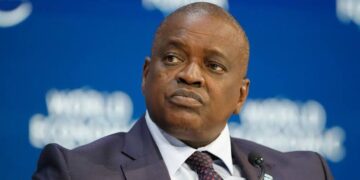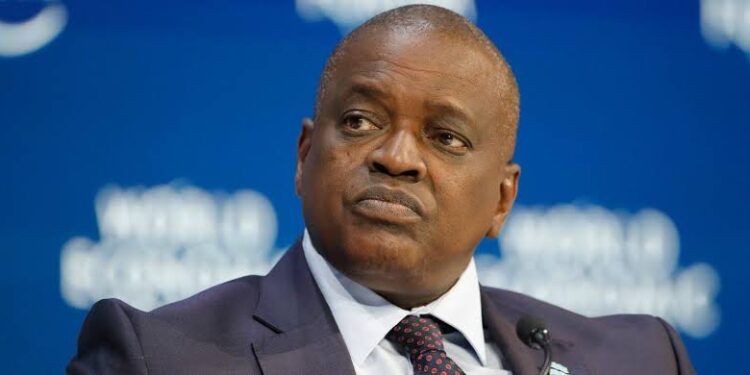By John Ikani
Botswana’s President Mokgweetsi Masisi has formally acknowledged defeat after preliminary election results indicated his Botswana Democratic Party (BDP) lost its parliamentary hold.
Masisi, 63, congratulated the opposition on their apparent win during a press briefing on Friday, signalling a potential change in Botswana’s political landscape.
“I wish to congratulate the opposition on their victory and concede the election,” Masisi stated to journalists. This statement came after early results showed three opposition parties collectively gaining at least 31 seats in Botswana’s 61-member National Assembly.
The Independent Electoral Commission (IEC) is set to confirm results on Friday, which could end the BDP’s political dominance since Botswana’s independence from Britain in 1966.
More than a million people were registered to vote out of a population of 2.6 million, with high unemployment and issues in Masisi’s administration drawing criticism ahead of the election.
The Mmegi newspaper reported on Facebook, “Opposition parties have garnered more than half of the parliamentary seats,” adding that “the ruling Botswana Democratic Party has now officially lost state power.”
A Change on the Horizon
The left-leaning opposition coalition, the Umbrella for Democratic Change (UDC), has reportedly secured over 24 seats, according to party spokesperson Mike Keakopa. The UDC’s aim is to secure a full majority of 31 seats, positioning its leader, Duma Boko, to take office as president.
The Botswana Congress Party and the Botswana Patriotic Front, two other opposition groups, have together won roughly a dozen seats. Reflecting on the shift, Mmegi’s online post read, “Botswana’s new dawn as Boko, UDC rise,” as the UDC showed strength in both national and local council polls, suggesting solid support for the coalition.
UDC leader Boko, a 54-year-old attorney and advocate for human rights, founded the coalition in 2012 to consolidate opposition voices against the BDP. This election marked his third presidential run.
“CHANGE IS HERE,” Boko announced on social media as the opposition’s performance continued to solidify.
Push for Reforms
Masisi’s administration has been plagued by allegations of favouritism and corruption, with the World Bank identifying Botswana as having one of the largest income gaps globally. In a July interview with South Africa’s ENCA, Boko stated, “The people in the country are clamouring for change, they are yearning for something refreshingly different.”
Pelontle Ditshotlo, a 41-year-old cleaning worker, echoed this sentiment, expressing hopes for positive change under a new administration. “We are expecting more from this new Botswana,” she said, adding that living costs had soared while the BDP failed to deliver on past promises. “When you are in parliament, we need to know that you listen to us, you are with us.”




































